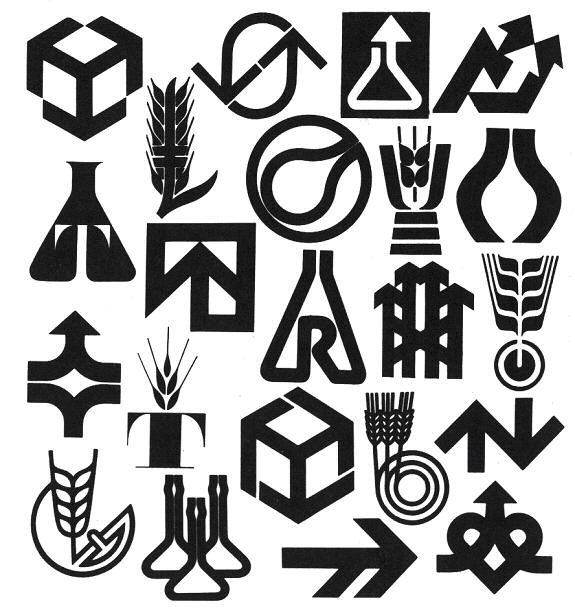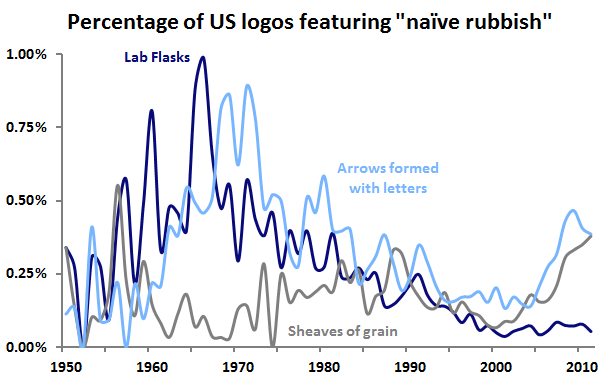Corporate identity legend Wally Olins died Monday at 83 after a brief illness. Here at Emblemetric, we remember fondly his 1978 book The Corporate Personality, in which he unleashed a scathing criticism of the clichéd logo design trends of the day:
Why are graphic designers still busily scribbling away at stylised flasks symbolising the powerful modern chemical company busying itself with Man’s Future but human enough to remember its Humble Origins? Why are they still producing stylised sheaves of some unspecified grain for food companies, indicating that the organisation has an involvement of however remote a kind with agriculture and Dear Old Dame Nature Herself by whose Bounty we all live? Above all, why are they still churning out these symbols consisting of initial letters tormented into a bizarre shape and ending with an arrow, preferably pointing upwards and slightly to the right, indicative of Progress, Dynamism and a controlled but powerful thrust towards what is clearly a Better and Brighter Future?
Why is it that the design idea that ultimately emerges is so often banal and trite? Is this naïve rubbish the best that we can do?
— Wally Olins, The Corporate Personality: An Inquiry Into the Nature of Corporate Identity, page 188
In honor of Mr Olins, let’s take a look at how those logo design trends have shown up in US logo design over the years, by analyzing logo design data from the United States Patent and Trademark Office.
When Olins launched his broadside in 1978, the laboratory flask logo design trend was already on its way out, and such flasks are rarely seen in logos today. Arrows formed with letters were similarly on the decline in 1978, although they saw a resurgence in the last decade. Sheaves of grain were seemingly never as common as Olins seemed to think, and are also on the rise among today’s logos. Hopefully, they are being used in a way that is neither banal nor trite.


